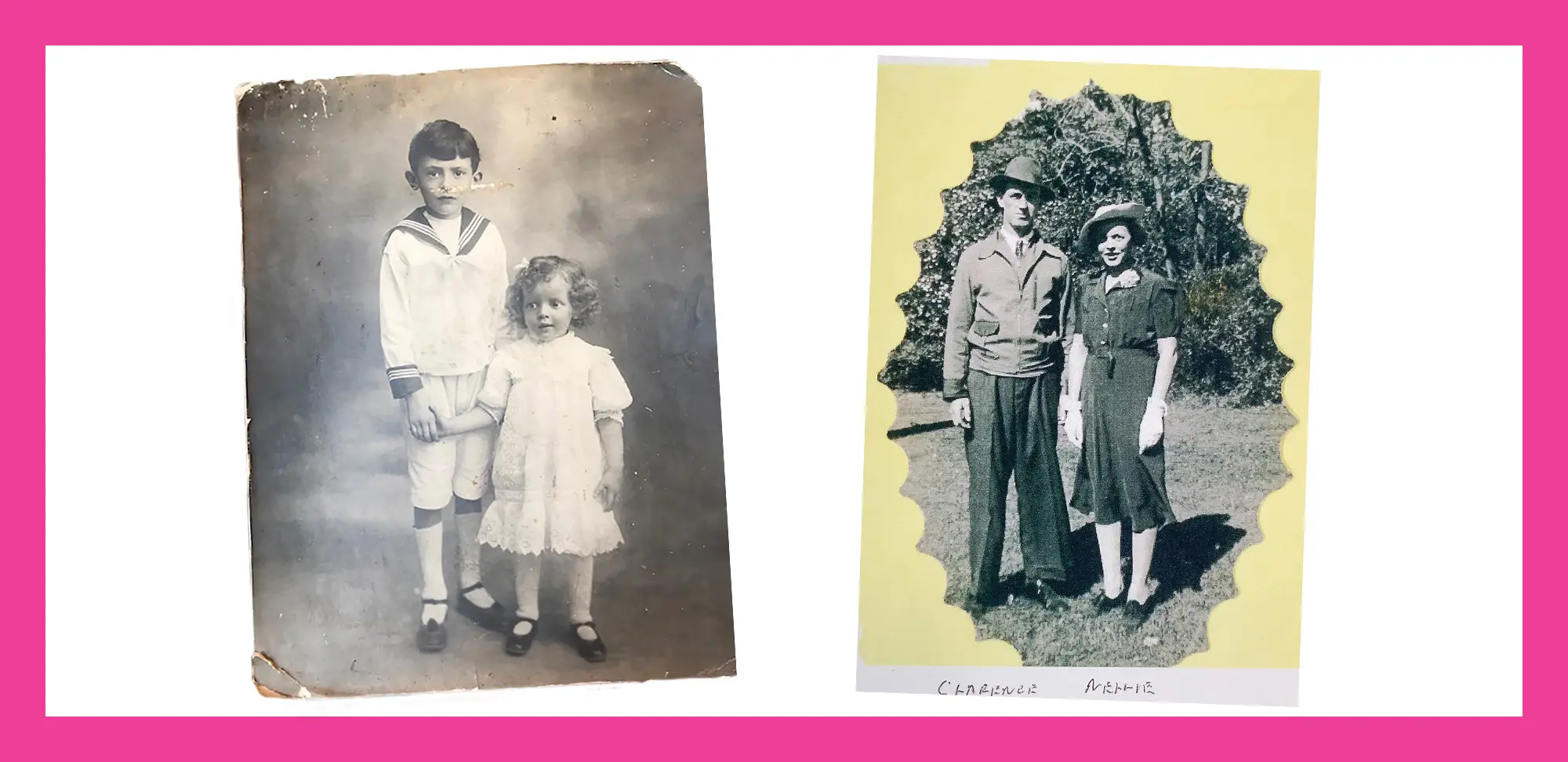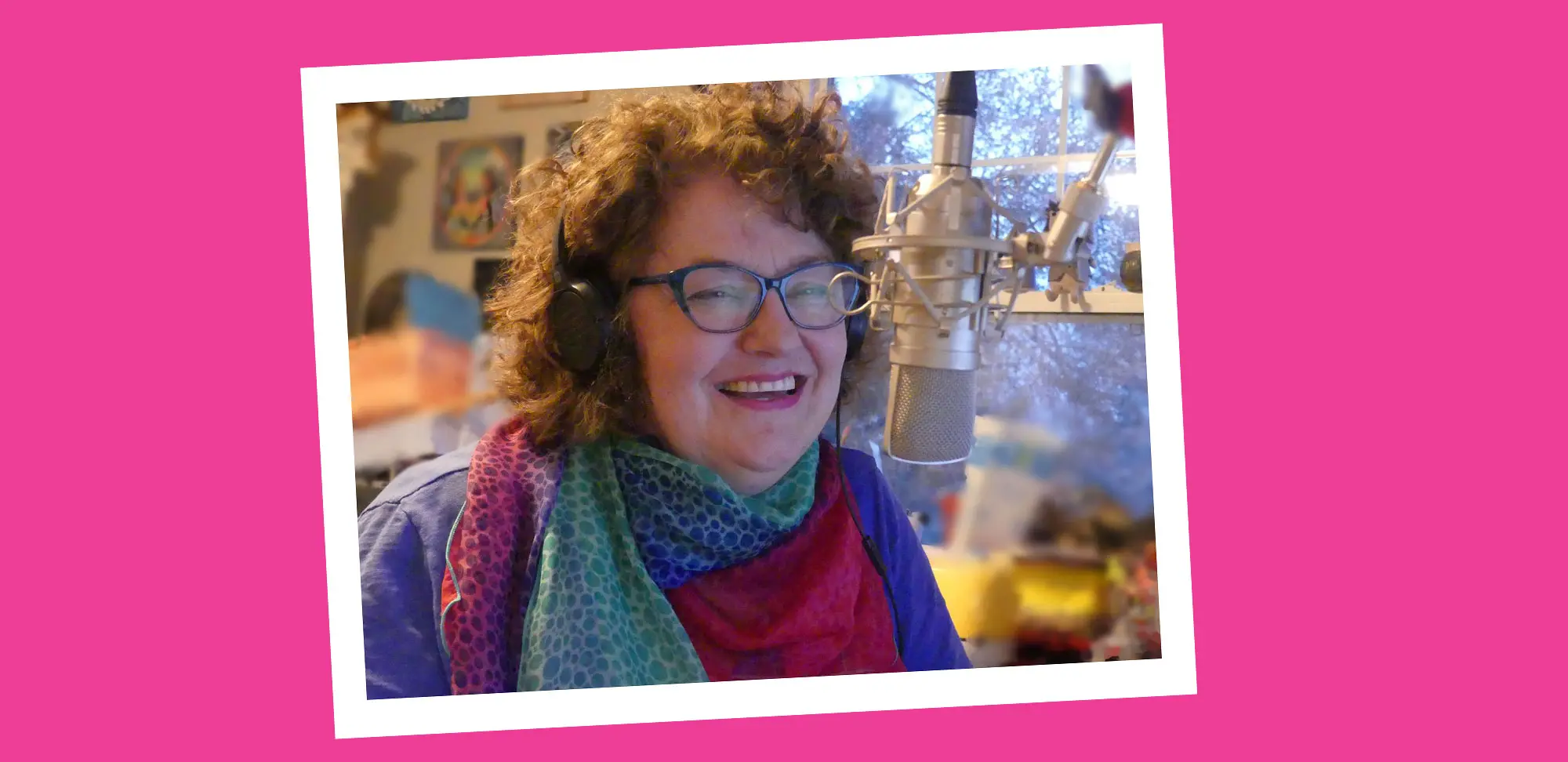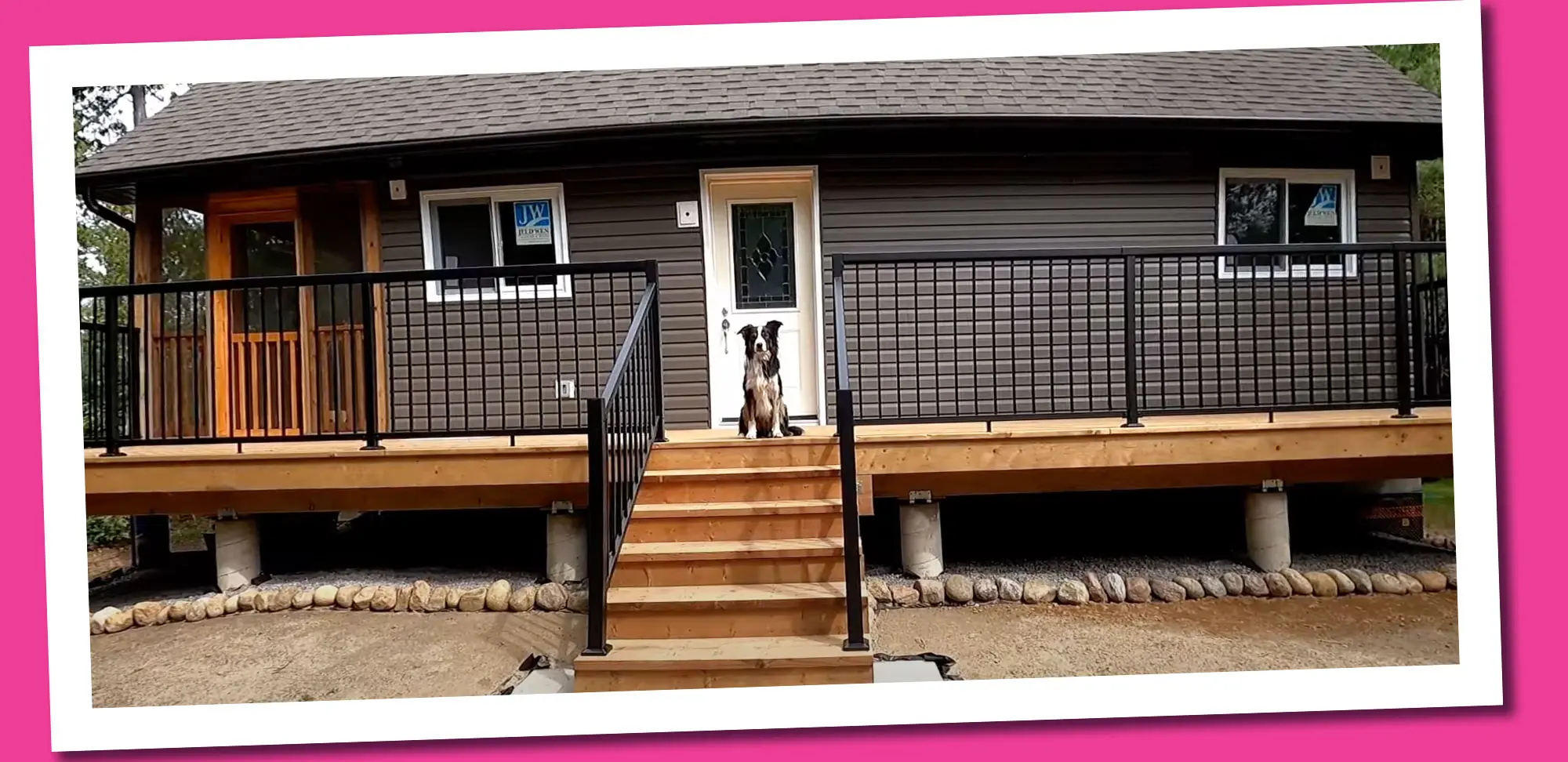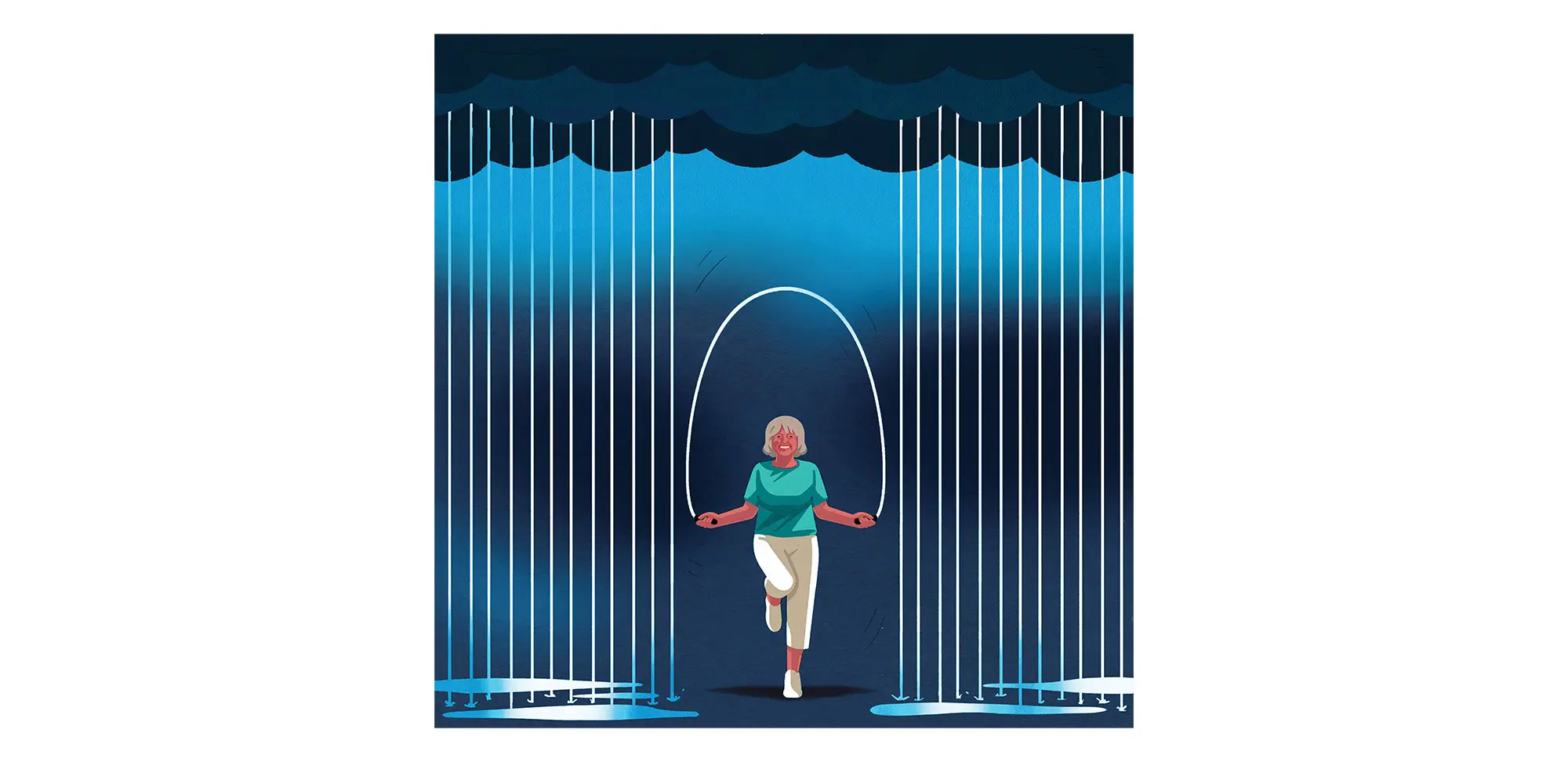Terry Chattington (District 8 London, Middlesex) “My mother, Nellie, had little education. But the life lessons she taught my siblings and me shaped us as much as, or more than, our schooling did, I think.
“Mom was born in 1914, north of Paris, and some of her earliest memories were of the First World War. ‘I can remember the many nights we had to spend in our dirt cellar,’ she wrote in a memoir letter many, many years later, ‘with food and candles and a pick and shovel, for we never knew if the next day we would find ourselves buried alive.’
“In 1922, the family of four — my mother and her brother Jimmy; her father, who was English; and her mother — sailed to New York, and then took the train to Montreal. Six months later, they took another train west. My grandmother missed her sister, who lived in Meadow Lake, Saskatchewan, but I think if my great-aunt had told them the truth about the life they faced, they would have never chosen to come. It took a week for the family to get from North Battleford to Meadow Lake by horse and wagon, in minus-40-degree weather.
“Eventually, my granddad obtained some land and built a log shack, filling the cracks with mud and laying sod on the roof. Apparently my grandmother cried and cried because she really wanted to go back to France, but they had used up all their money to get to Saskatchewan.
“Children are good at adapting to the environment they grow up in. I don’t know many people, though, who could do what my mother did to survive, especially at such a young age. She had a trapline, which she travelled along by dogsled, and she skinned the animals she caught. Because she didn’t have socks, she wrapped rags around her feet. She writes about collecting what she called ‘Sinacaroot’ — or Seneca root, a plant used to make iodine — and selling it for four cents a pound. Later she helped her brother saw log timbers and build a barn.
“My mother only really had a Grade 3 education. When she arrived in Saskatchewan as an eight-year-old, she only spoke French. The first day she went to school, everyone spoke English and she couldn’t understand anybody. She told me she got back on her horse and went home.
“Mom had a mind of her own. She was, in a way, confident in her abilities to sew, make clothing for her growing family and cook. She could make a meal out of almost anything, although I do recall that we ate a lot of bread pudding. She later became a nurse’s aide, which was hard work and a real accomplishment.
“The first day she went to school, everyone spoke English and she couldn’t understand anybody. She told me she got back on her horse and went home.ˮ
– Terry Chattington
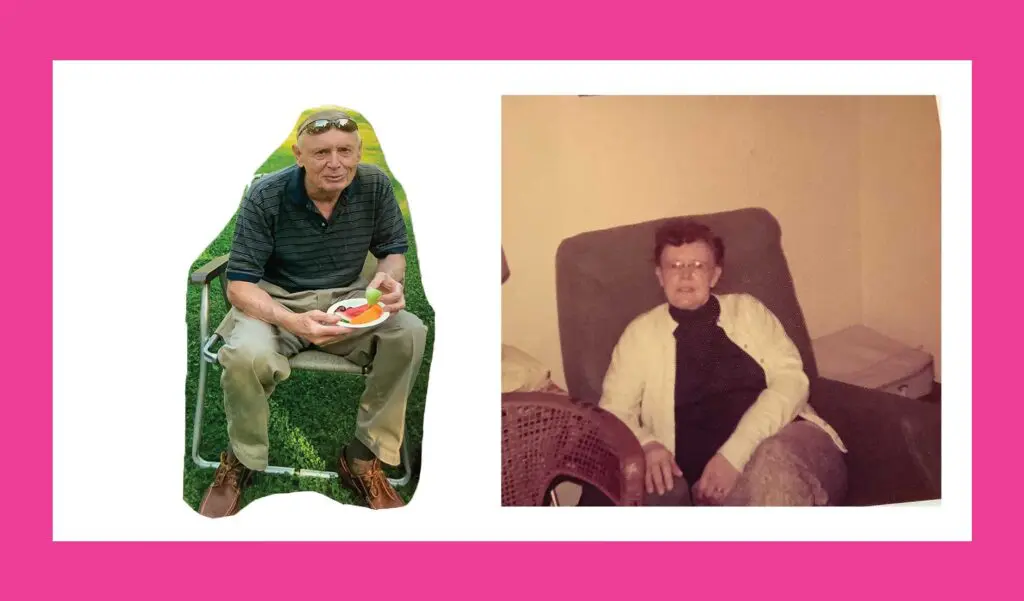
“But that lack of formal education always bothered her. I remember once showing her how to use the phone book. She took notes about how to find numbers. She could have done well in school, but not having access to the kind of education that we now take for granted affected her confidence and her self-image.
“Mom wasn’t what you would call religious, but she believed in God and made sure that we went to Sunday school. She was ethical — there was no arguing with her: Right was right and wrong was wrong. She made sure that we behaved ourselves. When we got out of line, she would let us know what she thought; at one point she chased me around the house with a broom and poked me as I hid under a bed.
“My mother’s independence and self-confidence always belied her feeling of inadequacy when it came to reading, mathematics and book learning. She was a natural when it came to writing, and in another life probably could have authored some interesting stories. She was plain-spoken and sincere. There wasn’t a mean or phoney part of her personality.
“I taught for 26 years, in a wide variety of subject areas that I wasn’t necessarily a specialist in. Some of that flexibility comes from seeing my mother tackle so many challenges head-on.
“Schools are excellent at teaching all sorts of skills. But some of life’s most important lessons aren’t learned in the classroom: strength, ingenuity, resilience, ability to adapt to new circumstances as they come your way.
“My mom taught us all that and more, and I am forever grateful.”
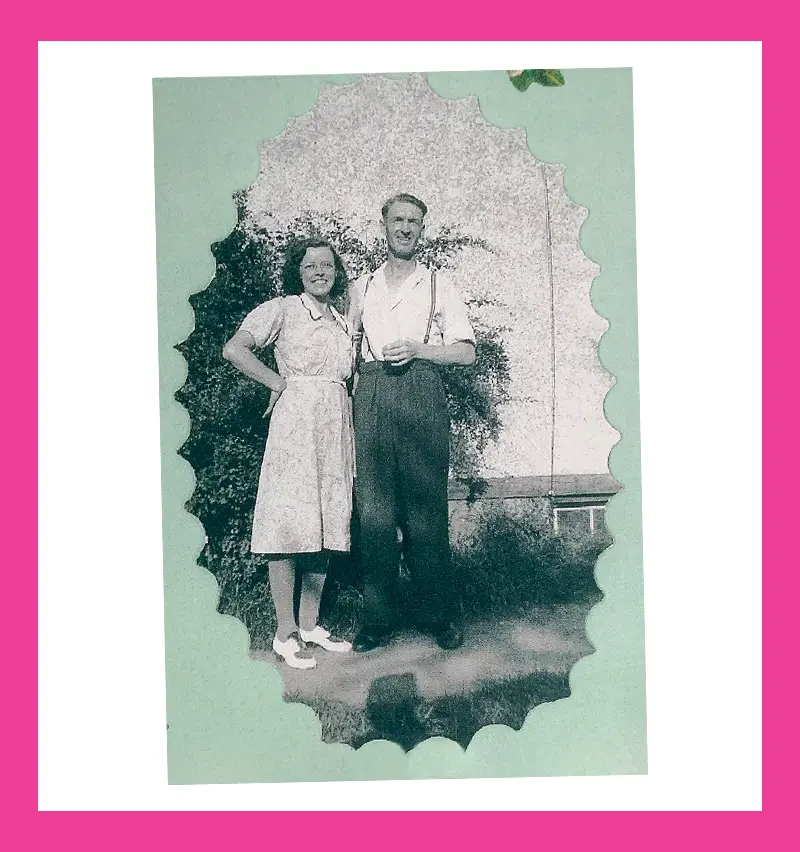
How I met your dad
By Nellie Chattington, in her own words
“Your dad and I lived on two different farms. Your dad wanted to become a boxer, so he stayed with my dad to learn how. Anyways, my dad did not tell him that he had a 19-year-old daughter, but one day, your dad brought his two horses to water at our well, for his had gone dry. So this one day I see this guy coming to our well, for I was already there pulling water for our cattle. I had a pail at the end of a rope and let it down through a small hole and lowered the pail about 20 feet. Anyways, here was your dad with these two horses, and I remember being so embarrassed, for I was wearing an old coat down to my rubber boots, with no makeup and my hair in little curls all over. He says he took to me that day, and after he left I said to myself, It would be funny if he became my husband. So that was our first visit. But to go out with your dad, I had to get rid of another boyfriend that I happened to go with at the time. That’s always hard to do, for you hate hurting anybody’s feelings. So that is when we started dating, for he was at our place nearly every day. We went together three months. My mother was pushing me to get married, for she was afraid something would happen, and also I was losing my reputation, for she’s always so scared about what the people would say.
“And so we did get married.”
